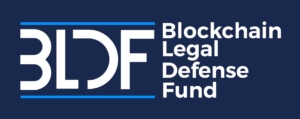Navigating Crypto Seizures: Legal Rights and Defenses
The rise of cryptocurrency has brought about new challenges for regulators, law enforcement, and users alike. One pressing issue is the seizure of crypto assets by regulatory bodies or governmental agencies. These actions, often tied to allegations of fraud, tax evasion, or money laundering, leave crypto holders wondering about their rights and potential defenses. Understanding these legal nuances is critical for safeguarding assets in an evolving regulatory landscape.
Why Are Crypto Assets Seized?
Fraud Investigations Cryptocurrencies have been implicated in fraudulent schemes, leading regulators to target wallets associated with suspicious transactions.
Tax Evasion Allegations Failure to report cryptocurrency gains or pay taxes on transactions has prompted authorities to pursue crypto seizures.
Anti-Money Laundering (AML) Compliance Wallets suspected of facilitating illicit activities are often frozen or confiscated under AML regulations.
Regulatory Violations Operating crypto businesses without proper licenses or compliance measures can trigger enforcement actions.
Legal Frameworks Governing Crypto Seizures
Jurisdictional Variances Crypto seizure laws vary widely across countries. In the U.S., seizures typically involve warrants issued under federal laws like the Bank Secrecy Act. Meanwhile, the EU relies on AML directives to justify asset freezes.
Due Process Requirements Authorities must often prove probable cause before seizing assets. This legal standard ensures that seizures are not arbitrary and respect the rights of the accused.
Asset Forfeiture Laws In some jurisdictions seized crypto assets are subject to forfeiture if they are tied to criminal activities. Legal battles often arise over proving the connection between the assets and alleged wrongdoing.
What Are Your Legal Rights?
Right to Notice Individuals must be informed of the reasons behind the seizure, including the laws or regulations allegedly violated.
Right to Counsel Legal representation is crucial for navigating the complexities of crypto seizure cases. Experienced attorneys can challenge the validity of the seizure or negotiate settlements.
Right to Appeal Most jurisdictions allow individuals to contest seizures in court. Filing timely appeals is essential for reclaiming assets.
Presumption of Innocence The authorities bear the burden of proof. Asset holders can challenge allegations and present evidence in their defense.
Defending Against Crypto Seizures
Proving Asset Legitimacy Maintaining comprehensive records of crypto transactions, including purchase receipts and wallet activity, can demonstrate the lawful origin of assets.
Challenging Jurisdiction Crypto transactions often cross borders, complicating jurisdictional claims. Defendants can argue that the seizing authority lacks jurisdiction over their assets.
Highlighting Procedural Errors If authorities fail to follow due process, such as obtaining proper warrants, seizures may be deemed invalid in court.
Negotiating Settlements In some cases, settling with authorities can expedite the return of assets while avoiding lengthy legal battles.
The Role of Legal Experts
Navigating crypto seizures requires specialized legal expertise. Attorneys familiar with blockchain technology, regulatory frameworks, and international law are best equipped to defend crypto holders. Early legal intervention can prevent asset freezes or minimize their impact.
Preventative Measures for Crypto Holders
Compliance First Ensure compliance with tax reporting, AML regulations, and licensing requirements to reduce the risk of seizures.
Diversify Storage Storing crypto assets across multiple wallets and jurisdictions can mitigate losses in case of seizures.
Use Privacy Tools Wisely While privacy tools can protect transactions, excessive use may attract regulatory attention. Strike a balance between anonymity and transparency.
Stay Informed Regularly monitor regulatory developments and legal precedents to understand potential risks and adapt strategies accordingly.
Crypto seizures are a growing reality as regulators intensify their oversight of the blockchain industry. Understanding your rights and defenses is essential for navigating these challenges. By prioritizing compliance, maintaining transparency, and seeking expert legal counsel, crypto holders can safeguard their assets and thrive in this dynamic ecosystem.






Leave a Reply
Want to join the discussion?Feel free to contribute!